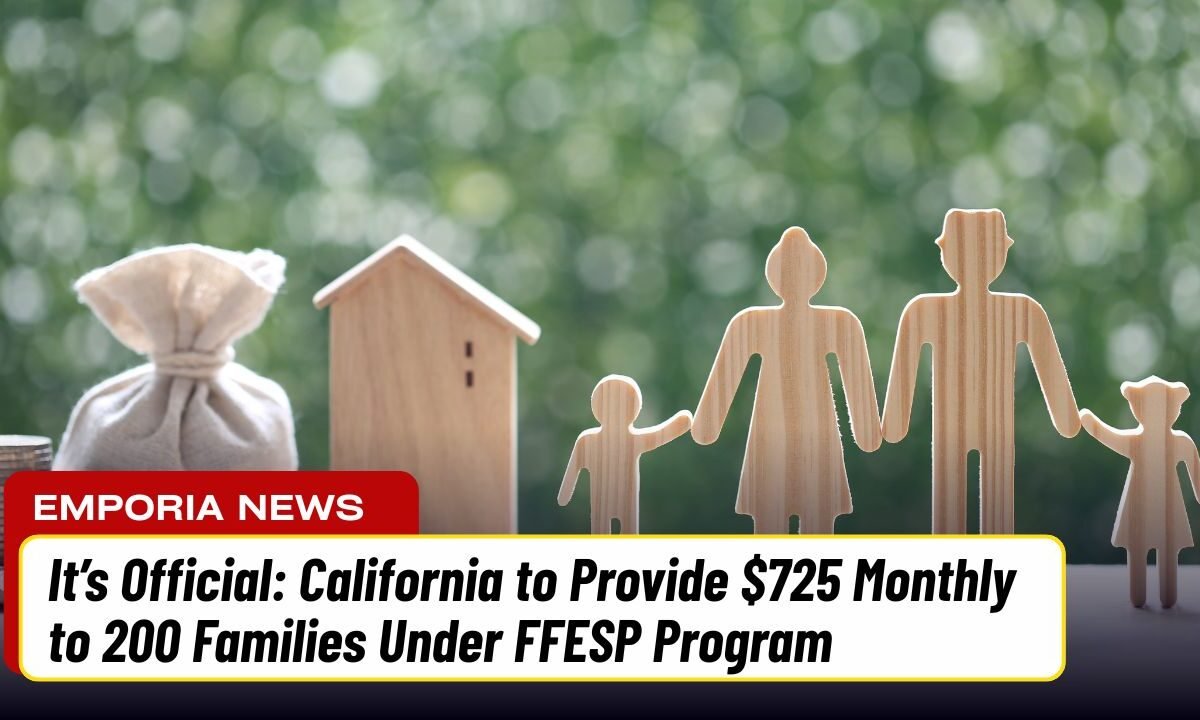The Family First Economic Support Program (FFESP) in California was established to provide direct financial aid to low-income families with young children aged newborn to five years old.
This initiative aims to relieve financial stress, ensure stability, and prevent issues related to the child welfare system by helping parents cover essential living expenses.
What Is the Family First Economic Support Program?
The FFESP is part of California’s guaranteed income initiative, where eligible families receive unconditional cash payments directly from the government.
Unlike traditional assistance programs, families are not required to meet specific spending conditions or report how the funds are used. This approach trusts families to decide what best meets their own needs and priorities.
Payment Amount and Schedule
The program officially began in December 2024 and continues through 2025 without interruption. Participating families receive $725 per month for 12 consecutive months, amounting to a total annual benefit of $8,700.
This stable monthly income allows parents to plan and manage their household budgets with greater confidence and peace of mind.
| Payment Period | Monthly Amount | Total Yearly Payment |
|---|---|---|
| December 2024 – November 2025 | $725 | $8,700 |
How Families Receive the Payments
The funds are deposited directly into participants’ bank accounts. For families without an existing bank account, the program facilitates the opening of free accounts at SAFE Credit Union in Sacramento.
This ensures seamless payment processing for all participants, including those with limited access to banking services.
Eligibility Criteria and Management
Since FFESP is currently a pilot program, only 200 families across specific Sacramento ZIP codes are selected to participate. To qualify, families must:
- Be caregivers of children aged 0–5 years
- Reside in designated ZIP codes within Sacramento County
- Have low income, insufficient to meet basic living expenses
The program is jointly administered by the Sacramento County Department of Child and Family Services (DCFAS) and United Way California Capital Region, with funding provided by the State of California and private donors.
How Families Can Use the Money
One of the unique aspects of FFESP is its flexibility—families can spend the funds freely without restrictions or reporting requirements. Typical uses include:
- Rent or housing expenses
- Food and groceries
- Utility bills (electricity, water, or internet)
- Transportation costs
- Childcare services
- Essential items for young children
This unrestricted use is crucial in high-cost regions like California, where many parents struggle to balance housing, employment, and child care responsibilities.
Additional Support Services
Beyond direct financial aid, the program provides complementary services designed to strengthen families’ long-term financial health:
- Financial counseling to improve money management
- Workshops on budgeting and financial literacy
- Guidance to preserve other benefits like CalWORKs and CalFresh, ensuring that families do not lose existing support when receiving guaranteed income
These services help participants build sustainable financial practices while avoiding disruptions in their other benefits.
Research and Long-Term Impact
The FFESP is part of an ongoing social research study conducted by MEF Associates, focusing on how guaranteed income influences family well-being. Participating families complete confidential surveys at the start and end of the program.
The study aims to determine whether unconditional cash payments:
- Improve financial stability
- Prevent family crises
- Reduce child welfare interventions
If successful, the results may encourage California to expand the initiative to more communities statewide, setting a precedent for future economic support programs.
The Family First Economic Support Program represents a groundbreaking approach to family welfare in California.
By offering unconditional financial assistance and comprehensive support services, the initiative empowers low-income parents to make independent financial decisions that directly benefit their households.
If the research proves effective, it could pave the way for statewide expansion and a transformative shift in how social assistance programs are designed.




